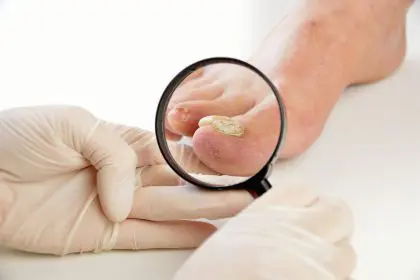The body, accustomed to external hormone regulation, must recalibrate its natural cycles. This transition can result in temporary irregularities, such as changes in menstrual cycles, mood fluctuations, skin breakouts, and shifts in energy levels. Many report feeling unfamiliar sensations, ranging from heightened emotions to unexpected physical symptoms.
The body’s response varies from person to person. Some experience immediate changes, while others notice effects months later. Research suggests that it can take time for hormonal balance to restore, particularly for those who have used contraception for extended periods. Despite this, post-birth control effects remain widely underrecognized in mainstream healthcare conversations.
Social media’s role in awareness
Across platforms like TikTok and Reddit, thousands have turned to online communities to document their symptoms after stopping hormonal birth control. Many describe similar challenges—prolonged cycle irregularities, increased anxiety, and acne flare-ups. These testimonials have created a collective narrative, helping others feel validated in their experiences.
The power of these digital spaces lies in their ability to amplify concerns that often go unheard in medical consultations. While healthcare providers may dismiss certain symptoms as unrelated, social media users have drawn connections between personal accounts, leading to a greater push for recognition. The rise of online health communities has also sparked discussions about alternative birth control methods, giving individuals access to a wider range of options.
Medical perspectives evolve
Although post-birth control syndrome lacks official medical classification, increasing awareness has encouraged some providers to take a closer look. Patients often report feeling unheard when raising concerns, but growing advocacy efforts have pressured the medical field to consider more comprehensive reproductive health approaches.
Some specialists suggest that discontinuing hormonal contraception may reveal underlying conditions that had been masked, such as polycystic ovary syndrome (PCOS) or endometriosis. This has led to a shift in perspective, where more healthcare professionals recognize the importance of monitoring patients during and after birth control use. Still, many struggle to find providers who take their concerns seriously, leaving them to rely on peer-shared knowledge.
Hormone recalibration process
Once synthetic hormones leave the system, natural hormone production resumes, often at an irregular pace. This fluctuation can influence everything from menstrual cycle timing to energy levels and metabolism. For some, it takes only a few weeks to regulate, while others experience prolonged effects.
Key hormones like estrogen and progesterone play a significant role in mood stability, skin health, and even digestion. When these hormones are no longer supplied externally, the body must work to find equilibrium. Some people experience hair shedding, while others notice digestive changes or an increase in stress sensitivity. Despite these widespread effects, few formal studies have explored the full scope of post-birth control symptoms.
Bridging healthcare communication gaps
Many individuals report feeling dismissed when seeking guidance about post-birth control changes. The lack of formal recognition for post-birth control syndrome means that many symptoms go unaddressed, leaving individuals without proper support.
The gap in understanding often stems from limited research on long-term hormonal contraception effects. While birth control has been widely studied for its efficacy in preventing pregnancy, fewer studies explore what happens after stopping it. As a result, many experience unexpected side effects without prior warning, leading to frustration and confusion.
Patient education remains a crucial component of navigating this transition. Those preparing to stop birth control can benefit from understanding potential changes and tracking symptoms to identify patterns. Finding healthcare providers who acknowledge post-birth control experiences can also help ensure a smoother transition.
Empowering informed reproductive choices
The conversation around post-birth control effects highlights the need for improved education on reproductive health. Many individuals begin contraception without fully understanding the potential challenges of discontinuation, leading to unexpected difficulties when they decide to stop.
With greater access to shared experiences and evolving medical discussions, individuals can make more informed choices about their reproductive health. Whether continuing with hormonal contraception or exploring alternative methods, knowledge remains the most powerful tool in navigating this deeply personal decision.
As discussions continue to grow, medical professionals may be encouraged to approach birth control counseling more holistically, acknowledging not just the benefits but also the transitions that come with stopping hormonal regulation.















